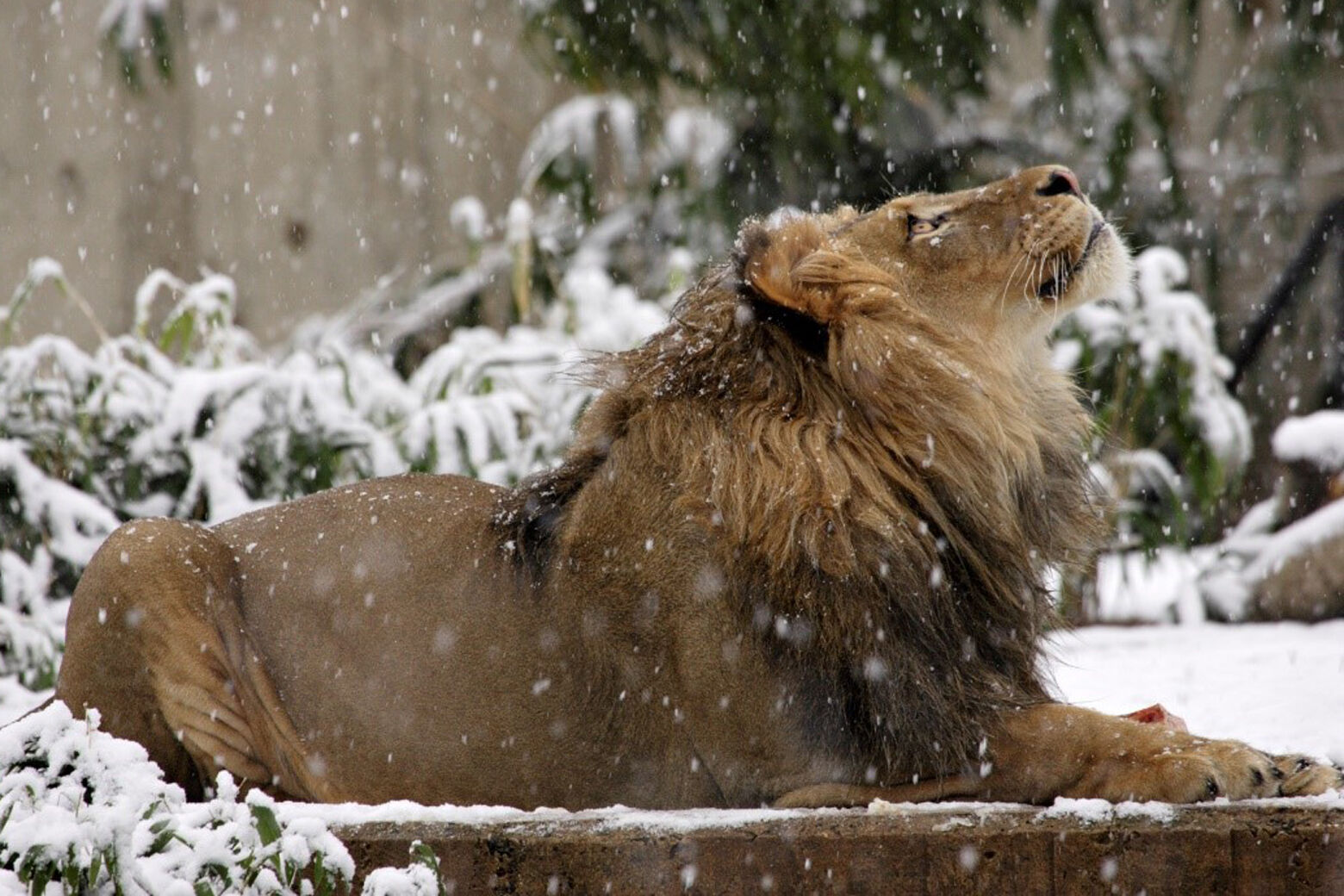A 17-year-old lion at the Smithsonian National Zoo has died, the zoo announced.
The lion, named Luke, was humanely euthanized at the zoo on Wednesday after losing a significant amount of weight this month and the discovery of numerous health issues.
The lion had been experiencing occasional discomfort and lameness in his right forelimb since 2016, according to the zoo. At the time, veterinarians discovered a herniated disk but opted against surgery, citing the risk of complication.
Earlier in October, zookeepers noted Luke had lost 17.6 pounds and was experiencing dehydration and a severe lack of appetite.
During an exam to identify the cause of his weight loss and lack of appetite, veterinarians found several cystic masses throughout his liver. They also found several of his cervical vertebra had fused together.
Given these findings, Luke’s overall quality of life was considered poor, and the animal care team decided to euthanize him.
The median life expectancy for African lions in human care is 17 years.

Luke is the second lion to die at the zoo in less than a month. Luke’s mate, Naba, a female African lion, was euthanized after ailing for several months.
Luke arrived at the Smithsonian’s National Zoo and Conservation Biology Institute in October 2006 following a breeding recommendation from the Association of Zoos and Aquariums’ Species Survival Plan. At that time, Luke was the most genetically valuable lion in North America because his genes were not represented in any U.S. zoos.
Together with his mates, Naba and Shera, Luke reared 13 cubs from four litters. Zoo visitors can see Shera and her offspring Amahle, Shaka and Jumbe on exhibit or on the zoo’s Lion Cam.
“Luke was truly the ‘king’ of the Great Cats exhibit,” said Craig Saffoe, curator of the Great Cats, Andean Bears, and Kids’ Farm areas of the National Zoo.
“Luke has left a lasting legacy, not only in the cubs he contributed to his species’ survival, but also in the millions of visitors who were able to gain a deeper knowledge of and appreciation for African lions because of who he was as the patriarch of his pride.”








